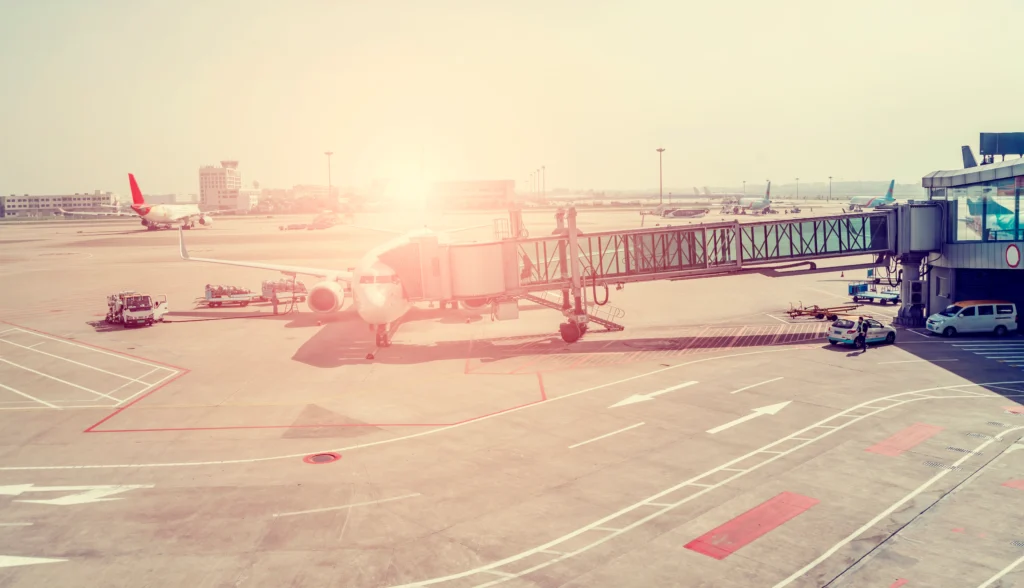Iraq- The country is taking a major step to modernize its infrastructure by inviting international private sector companies to bid on the expansion and operation of Baghdad International Airport. This initiative comes after years of neglect in a country scarred by conflict and is part of a broader strategy to enhance public services and attract foreign investment. In September, the Iraqi government signed an agreement with the World Bank’s International Finance Corporation (IFC) to oversee this ambitious project.
The tender process is a two-stage public tender aimed at selecting a private partner to rehabilitate, expand, finance, operate, and maintain the airport under a long-term Public-Private Partnership (PPP) contract. This project marks a historic milestone as it is the first time Iraq has opened its airports to private international investment. Farhad Alaaldin, the prime minister’s foreign affairs adviser, highlighted that this initiative would elevate Iraq’s aviation sector to international standards, a crucial step for a country looking to rebuild and modernize.
Bids must be submitted by September 12, and the winning bidder will be responsible for a comprehensive modernization of the airport. This includes rehabilitating existing infrastructure, expanding passenger and cargo terminal facilities, and ensuring the airport operates and is maintained according to international best practices. The IFC, serving as the lead transaction advisor, is expected to provide oversight throughout the project and develop an economic model that attracts world-class companies. Alaaldin emphasized that Iraq is increasingly open for business and that inward investment is on the rise.
Prime Minister Mohamed Shia Al-Sudani’s office revealed that an IFC study showed a compound annual growth rate of 15.7% in air traffic in recent years. In 2023 alone, over 3.4 million passengers arrived in Baghdad. The IFC has proposed constructing a new terminal to boost the airport’s capacity to accommodate up to nine million passengers annually. This expansion is crucial, as Baghdad International Airport has seen no significant renovations since its opening in the early 1980s. The airport was closed during the 1990s due to international sanctions, forcing travelers to use land routes to neighboring Jordan to catch flights.
Currently, Baghdad airport struggles with capacity issues, especially during peak travel times, and its three terminals offer only basic amenities. Additionally, parts of the airport are occupied by international anti-jihadist coalition troops, who have previously come under fire, further complicating the airport’s operations. This underscores the urgent need for modernization and expansion to meet growing demands and improve the passenger experience.
Iraq’s broader infrastructure challenges, characterized by decades of conflict, poor public management, and endemic corruption, have left the country with deteriorating public services. Engaging the private sector through PPPs aims to leverage private sector expertise, efficiency, and funding to enhance public assets and services. This model, while beneficial in many respects, also brings potential challenges such as higher long-term costs for taxpayers, issues of transparency, and shifts in public accountability.
The involvement of the IFC, a member of the World Bank Group and the largest global development institution focused exclusively on the private sector in developing countries, is expected to mitigate some of these challenges. By providing a robust framework and oversight, the IFC aims to ensure that the project adheres to international standards and best practices, thereby attracting reputable international companies to bid.
This initiative reflects Iraq’s commitment to rebuilding and modernizing its infrastructure, fostering economic growth, and improving the quality of public services. With the deadline for bid submissions fast approaching, the eyes of the international investment community are on Baghdad, anticipating a transformative project that could serve as a model for future public-private collaborations in the region. Successfully executing this project could significantly boost Iraq’s aviation sector, stimulate economic development, and enhance the country’s global connectivity.





